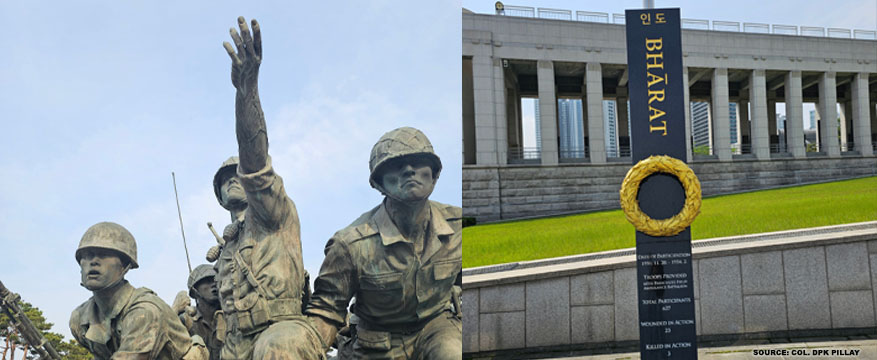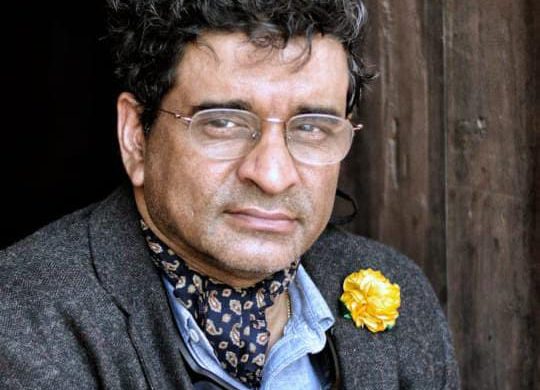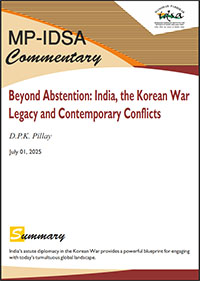Beyond Abstention: India, the Korean War Legacy and Contemporary Conflicts
- July 01, 2025 |
- IDSA Comments


The Korean War offers the world, and indeed India, invaluable lessons in de-escalation, principled engagement, and the profound impact of humanitarian action. India’s commitment was never passive. While condemning North Korea’s aggression and supporting UN resolutions, New Delhi deliberately opted out of being militarily involved in the conflict. Instead, India deployed the 60th Field Ambulance Unit, a powerful symbol of its dedication to alleviating suffering rather than escalating violence. This wasn’t merely a symbolic gesture, it was a strategic choice, reflecting India’s nascent state, its domestic priorities, and its foresight in nurturing ties with a newly emergent China.
India’s diplomatic strength manifested during the acrimonious negotiations. Crucially, the presence of K.M. Panikkar, India’s Ambassador to Peking (Beijing), proved invaluable. Panikkar acted as a vital communication bridge, relaying crucial messages between the Chinese leadership and the Western powers. His prescience proved pivotal in November 1950 following China’s intervention, as he had previously communicated China’s explicit warning—they would intervene if UN forces crossed the 38th Parallel.[1] This had become the accepted, albeit unofficial, boundary between North and South Korea after the end of World War II. Panikkar later also conveyed a chilling warning regarding the potential use of the atomic bomb if Chinese aggression did not cease. Prime Minister Jawaharlal Nehru later denied this threat was a direct transmission of a US message, but it underscored the intense pressure and the critical role India played in these high-stakes communications.
India successfully engineered a series of ceasefire attempts and delayed a UN resolution branding China as an aggressor, by rallying its Arab-Asian and Commonwealth partners. This collective diplomatic pressure was instrumental, compelling a reluctant US administration to prioritise a negotiated ceasefire and showcasing India’s undeniable ‘constraining role’ at the UN.
The ultimate testament to India’s influence came in autumn 1952, amidst the stalemate over the prisoners-of-war repatriation.
The UN championed “non-forcible repatriation”, while the Communist bloc demanded “all-for-all” exchanges. India stepped forward with a groundbreaking “Indian resolution”, a neutral commission to oversee non-repatriated prisoners, allowing for persuasion and a post-war political conference to determine their fate.[2] This pragmatic solution, initially met with skepticism, gained undeniable traction. The resolution, embodying India’s core principles, was overwhelmingly adopted by the UN and became the vital framework for the Korean Armistice Agreement signed on 27 July 1953.
India’s commitment extended beyond diplomatic pronouncements. Its elevated stature and the trust it had painstakingly earned led to its appointment as the Chairman of the Neutral Nations Repatriation Commission (NNRC). Crucially, India also provided the Custodian Force of India (CFI). The CFI was a contingent of approximately 6,000 personnel structured on the Indian Army’s 190 Infantry Brigade. It played a pivotal role in the post-Korean War Armistice agreement for repatriation of over 22,000 prisoners of war. The CFI was commanded by Major General S.P.P. Thorat under the overall purview of Lieutenant General K.S. Thimmayya, Chairman of the NNRC. It comprised of the Garhwal Rifles, Dogra, Rajputana Rifles and Jat regiments, along with critical ancillary and medical components (including the 60 Parachute Field Ambulance that was already in Korea), apart from civilian language experts.
Their mission was to hold custody of non-repatriated POWs, oversee voluntary repatriation, and facilitate ‘explanations’ to allow prisoners to choose their future, upholding strict neutrality and professional discipline. This deployment was a powerful demonstration of India’s commitment to peace and its willingness to back diplomatic efforts with significant on-the-ground resources, establishing a key precedent for its international peacekeeping role.
A Call to Global Leadership
The lessons from India’s astute, resolute diplomacy in the Korean War are not merely historical footnotes but a powerful blueprint for engaging with today’s tumultuous global landscape. The enduring legacy of the Korean War implores India to be more than a significant regional player. It demands that the nation translate its historical achievements into a more decisive and proactive role on the world stage.
In conflicts spanning Ukraine and Russia, Iran and Israel, or Hamas and Israel—where India notably maintains strong ties, including hosting a Palestinian embassy—India finds itself uniquely positioned. It possesses established relationships with all sides, a deeply rooted history of non-alignment, and the moral authority painstakingly earned through past peacemaking efforts. This unique diplomatic real estate, however, comes with a corresponding responsibility.
Drawing directly from its Korean War experience, India has clear pathways to elevate its global contributions.
Leading with Principled Humanitarianism
India’s medical mission in Korea set a powerful precedent for humanitarian intervention. This was not about sending boots on the ground, but about delivering vital aid. Today, this translates into a pressing need for India to expand its already robust humanitarian aid and disaster relief operations. This means leveraging its significant capabilities not just to react to crises, but to actively seek opportunities to provide critical assistance in every major conflict zone. This will entail, for instance, partnering with an Indian aid agency, embodying the neutral, humanitarian principles the ICRC once championed, intervening in such zones to build trust and foster stability irrespective of political alignments.
Asserting True Diplomatic Leadership
India’s historical capacity to engage with and mediate between Cold War adversaries in Korea stemmed directly from its principled neutrality—a stance characterised by active, deliberate engagement, not passive observation. In today’s hyper-polarised world, India is uniquely positioned to convene dialogue, mediate disputes and build consensus where other powers may be constrained. This demands a bolder assertion of its diplomatic weight, proactively proposing innovative solutions and fostering genuine dialogue in conflicts that currently appear deadlocked. Mere words are not enough, nor is abstaining from votes an assertion of influence. India will have to actively demonstrate its capacity to influence world outcomes.
Investing in Global Stability
The Custodian Force of India in Korea was a tangible commitment, backing diplomatic efforts with on-the-ground resources. For contemporary conflicts, India must now consider where it can make similarly impactful contributions beyond traditional diplomatic channels. This could involve significantly increased participation in UN peacekeeping missions, taking the lead on multilateral initiatives for conflict resolution, or offering specialised technical expertise for crucial post-conflict reconstruction efforts. With its rapidly growing economic might and vast human capital, India possesses the capacity to do far more, and the global community increasingly expects it.
Championing a Long-Term Vision for Peace
India’s unwavering persistence in the Korean War, despite numerous setbacks, eventually led to the armistice. This historical resilience underscores the absolute necessity of a long-term vision for peace—one that consistently prioritises de-escalation and finding common ground over short-term geopolitical gains. India must consistently advocate for diplomatic solutions, even when immediate prospects seem bleak, serving as a constant reminder to the world that even the most intractable conflicts can ultimately find a peaceful resolution.
Conclusion
The Korean War proved unequivocally that India can be an indispensable force for peace on the global stage. Seventy-five years later, with its unique blend of moral authority and practical engagement, India can fully realise its potential as a true global peacemaker. The critical question today is no longer whether India can make a difference, but how much more difference it is willing to make, and with what renewed resolve.
Views expressed are of the author and do not necessarily reflect the views of the Manohar Parrikar IDSA or of the Government of India.
[1] K.M. Panikkar, In Two Chinas: Memoirs of a Diplomat, Allen & Unwin, London, 1955.
[2] Biswamohan Mishra, “The Indian U.N. Policy during the Korean Crisis”, The Indian Journal of Political Science, Vol. 25, No. 3/4, Conference Number for XXVI Indian Political Science Conference 1964, Annamalainagar (July–September–December 1964), pp. 145–151.






